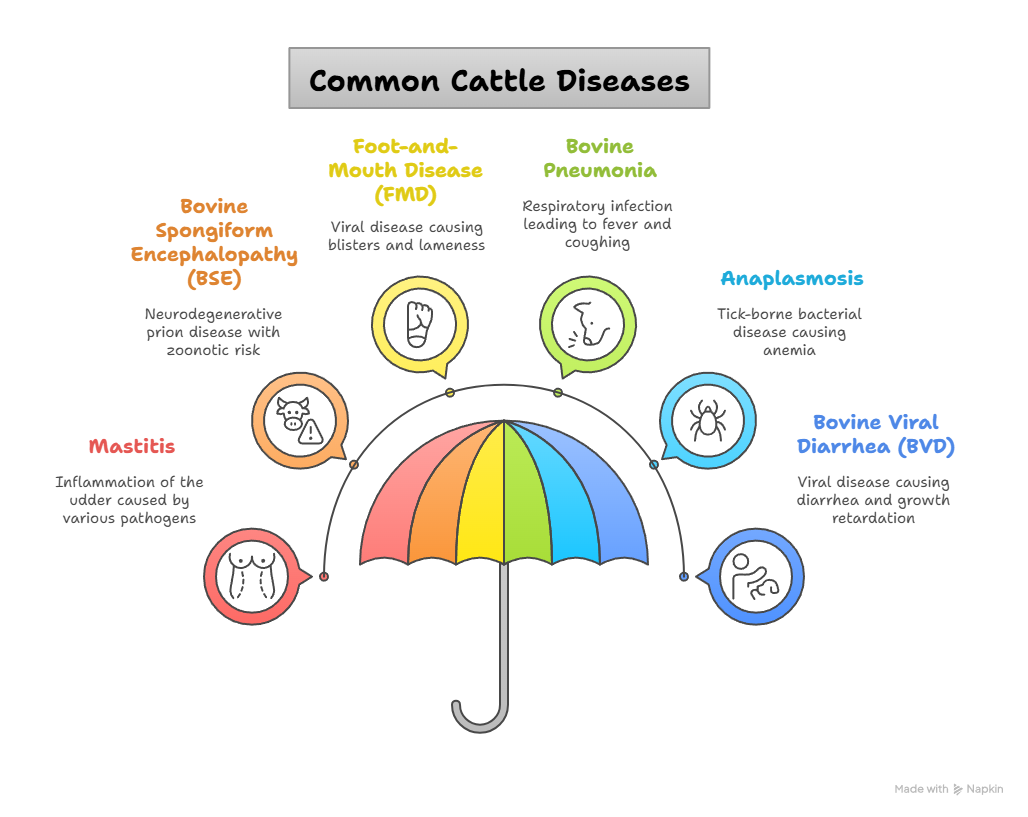Madhya Pradesh
ICAR-NIHSAD Designated as Category A Rinderpest Facility
- 20 Jun 2025
- 3 min read
Why in News?
India marked a significant achievement in global animal health as the World Organisation for Animal Health (WOAH) and Food and Agriculture Organization (FAO) designated the ICAR-National Institute of High Security Animal Diseases (NIHSAD), Bhopal, as a Category A Rinderpest Holding Facility.
- India is now among the six facilities worldwide trusted to securely hold rinderpest virus material.
Key Points
- NIHSAD (National Institute of High Security Animal Diseases):
- NIHSAD is India’s premier Biosafety Level-3 (BSL-3) facility high-containment lab for research on exotic and emerging animal pathogens, disease diagnosis, and bio-containment of high-risk organisms.
- Established in 1984 as High Security Animal Disease Laboratory (HSADL) and later renamed, it serves as a reference lab for avian influenza, Newcastle disease, and other transboundary and zoonotic diseases under the One Health framework.
- It functions under the Indian Council of Agricultural Research (ICAR), Ministry of Agriculture & Farmers’ Welfare.
- NIHSAD is India’s premier Biosafety Level-3 (BSL-3) facility high-containment lab for research on exotic and emerging animal pathogens, disease diagnosis, and bio-containment of high-risk organisms.
- Rinderpest:
- Rinderpest, also known as “cattle plague,” was a highly contagious and deadly viral disease until its global eradication in 2011.
- Despite eradication, Rinderpest Virus-Containing Material (RVCM) still exists in a few labs worldwide, posing a potential biosecurity threat.
- It spreads via contact with infected secretions or contaminated feed/water. Symptoms included high fever, mouth ulcers, diarrhoea, and rapid death.
- It caused massive livestock losses across Africa, Asia, and Europe, leading to economic collapse and food insecurity.
- To mitigate this, FAO and WOAH limit RVCM storage to high-security laboratories under stringent global oversight.
- Rinderpest, also known as “cattle plague,” was a highly contagious and deadly viral disease until its global eradication in 2011.
World Organization for Animal Health (WOAH)
- The WOAH, originally founded as the Office International des Epizooties (OIE) in 1924, is an intergovernmental organization headquartered in Paris, France.
- It was founded in response to the global rinderpest outbreak.
- WOAH is formally recognised under the World Trade Organisation (WTO) Agreement on the Application of Sanitary and Phytosanitary Measures (SPS Agreement) as the international standard-setting body for animal health.
- The World Assembly of Delegates is WOAH’s top decision-making body, comprising representatives from all 183 member countries, including India.
- It meets annually in Paris, with each country having one vote.







